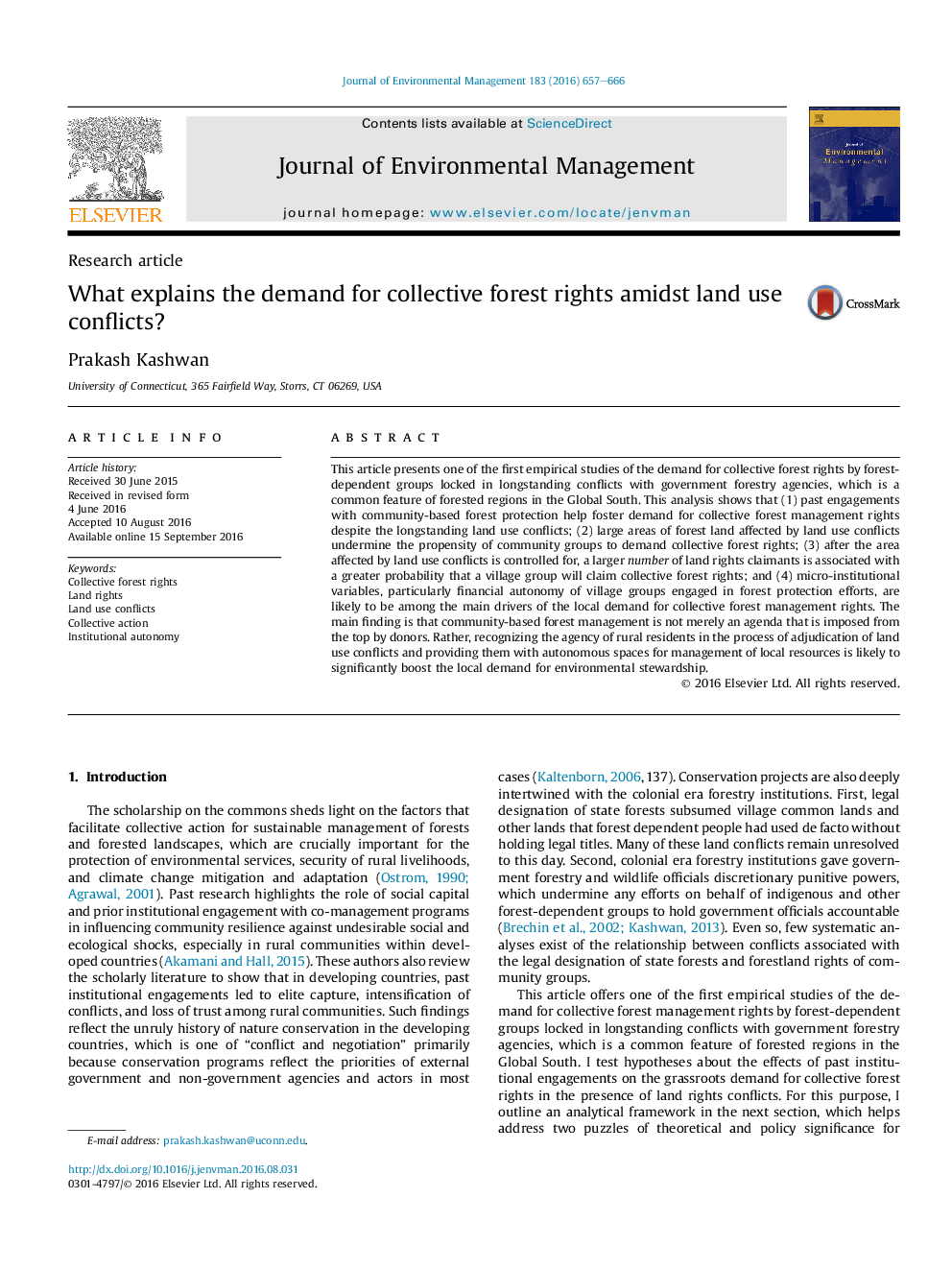| کد مقاله | کد نشریه | سال انتشار | مقاله انگلیسی | نسخه تمام متن |
|---|---|---|---|---|
| 5117201 | 1378118 | 2016 | 10 صفحه PDF | دانلود رایگان |
- I analyze the demand for community forest rights (CFR) amidst land use conflicts.
- Peasant land rights claims do not necessarily undermine the demand for CFRs.
- Demand for CFRs is low if land use conflicts affect large (>150Â ha) areas of forests.
- This analysis offers evidence for institutional learning effects of community-based forestry.
- Findings inform realization of United Nations' 2030 Sustainable Development Goals.
This article presents one of the first empirical studies of the demand for collective forest rights by forest-dependent groups locked in longstanding conflicts with government forestry agencies, which is a common feature of forested regions in the Global South. This analysis shows that (1) past engagements with community-based forest protection help foster demand for collective forest management rights despite the longstanding land use conflicts; (2) large areas of forest land affected by land use conflicts undermine the propensity of community groups to demand collective forest rights; (3) after the area affected by land use conflicts is controlled for, a larger number of land rights claimants is associated with a greater probability that a village group will claim collective forest rights; and (4) micro-institutional variables, particularly financial autonomy of village groups engaged in forest protection efforts, are likely to be among the main drivers of the local demand for collective forest management rights. The main finding is that community-based forest management is not merely an agenda that is imposed from the top by donors. Rather, recognizing the agency of rural residents in the process of adjudication of land use conflicts and providing them with autonomous spaces for management of local resources is likely to significantly boost the local demand for environmental stewardship.
Journal: Journal of Environmental Management - Volume 183, Part 3, 1 December 2016, Pages 657-666
